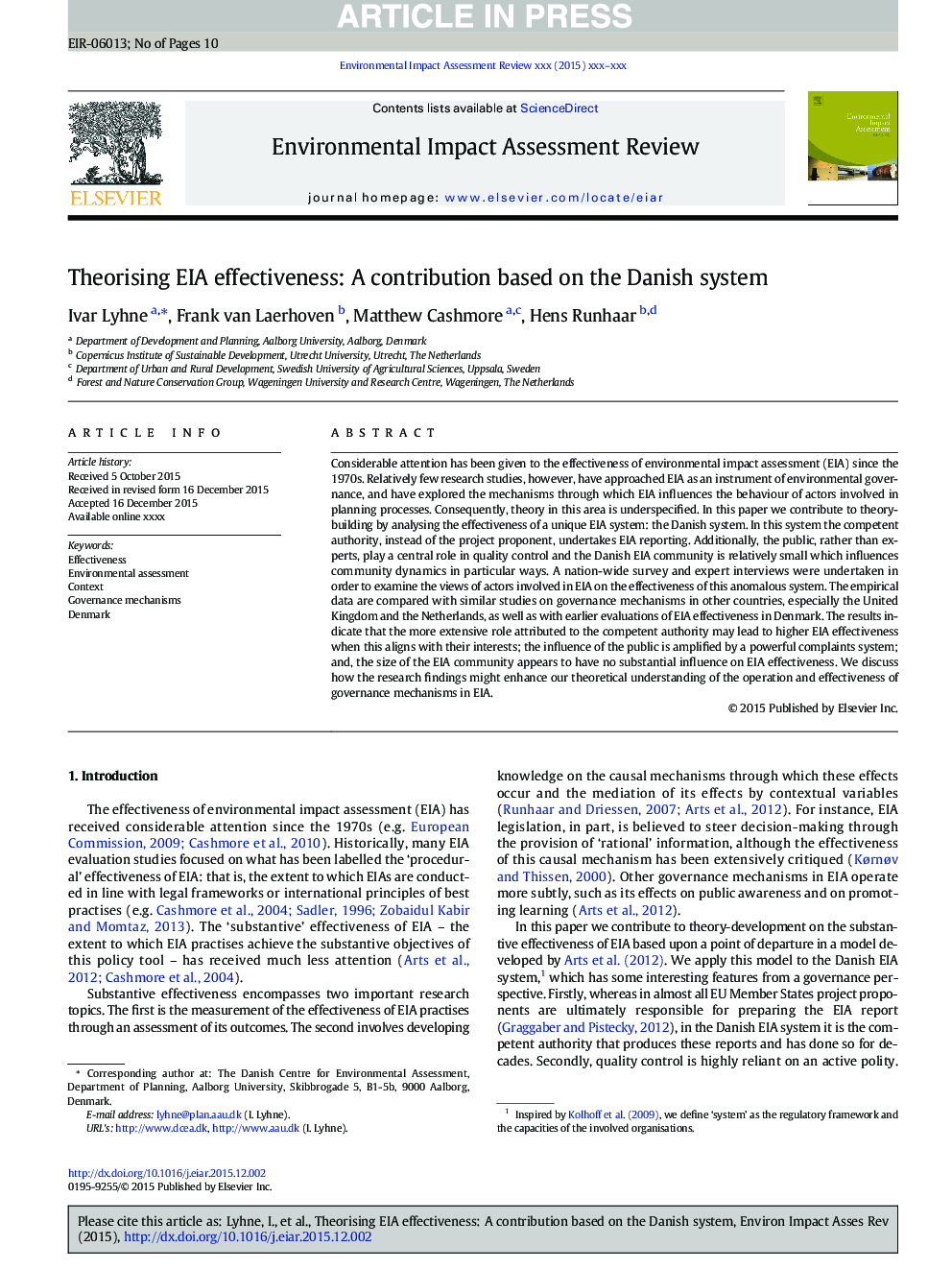| Article ID | Journal | Published Year | Pages | File Type |
|---|---|---|---|---|
| 7465104 | Environmental Impact Assessment Review | 2017 | 10 Pages |
Abstract
Considerable attention has been given to the effectiveness of environmental impact assessment (EIA) since the 1970s. Relatively few research studies, however, have approached EIA as an instrument of environmental governance, and have explored the mechanisms through which EIA influences the behaviour of actors involved in planning processes. Consequently, theory in this area is underspecified. In this paper we contribute to theory-building by analysing the effectiveness of a unique EIA system: the Danish system. In this system the competent authority, instead of the project proponent, undertakes EIA reporting. Additionally, the public, rather than experts, play a central role in quality control and the Danish EIA community is relatively small which influences community dynamics in particular ways. A nation-wide survey and expert interviews were undertaken in order to examine the views of actors involved in EIA on the effectiveness of this anomalous system. The empirical data are compared with similar studies on governance mechanisms in other countries, especially the United Kingdom and the Netherlands, as well as with earlier evaluations of EIA effectiveness in Denmark. The results indicate that the more extensive role attributed to the competent authority may lead to higher EIA effectiveness when this aligns with their interests; the influence of the public is amplified by a powerful complaints system; and, the size of the EIA community appears to have no substantial influence on EIA effectiveness. We discuss how the research findings might enhance our theoretical understanding of the operation and effectiveness of governance mechanisms in EIA.
Related Topics
Physical Sciences and Engineering
Energy
Renewable Energy, Sustainability and the Environment
Authors
Ivar Lyhne, Frank van Laerhoven, Matthew Cashmore, Hens Runhaar,
